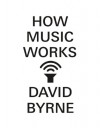Currently reading
Spam Nation: How the Demand for Cheap Prescription Drugs Is Endangering Americans, Threatening National Security and Enriching the Cybercrime Underworld
What Do You Do With a Chocolate Jesus?: An Irreverent History of Christianity
How Music Works
The Book of Strange New Things: A Novel
 There were a few times during the reading of this book that I felt like abandoning it. I pushed on hoping this very flawed book would reward me with a decent ending, but unfortunately not.
There were a few times during the reading of this book that I felt like abandoning it. I pushed on hoping this very flawed book would reward me with a decent ending, but unfortunately not. There are themes and ideas that could have made for an intriguing, philosophical and smart story but they all lead to the same unsatisfactory lame end.
I had no warmth for Peter, a reformed alcoholic and petty criminal who is now a Christian minister who volunteers to go to a far away planet to preach to the aliens/ natives there. He leaves behind his devoted wife Bea and the only way they can communicate is via a crude text based email. Peter is just meek, mild and bland and comes across a wimp at a military-like base run by an organisation called USIC which has an undefined (hinting at sinister) reason for "colonising" the planet known as Oasis.
Peter arrives to find 2 previous ministers to the natives seemed to go mad and had literally walked off into the wilderness after extended periods of time spent with the natives, who have heard about and revere Jesus and the Bible, which they call The Book of Strange New Things.
Peter spends extended periods of time with the natives, initially overjoyed at the ecstatic welcome they give him and settles in to try and minister to them and learn about them and close the language gap between them.
The natives are a mysterious people who are inscrutable on the surface, private, stoic and noble. I liked them and it seems obvious that their naive and childlike fascination about the Bible and Jesus is directly tied to its promises of immortality. Sadly, the author doesn't bother to either end their quest with either disappointment or triumph - they are just left hanging and in the worst of the books many unresolved loose ends, Peter's favourite native is injured and its fate is left unknown and discarded in a hospital room at the time of the books premature end.
So many things which seem integral to the story go either unexplained or are glossed over.
Early in his time on this new planet Peter finds his camera won't take pictures and he remembers he was warned photography would be "futile". No explanation as to why is offered. Peter laments this several times as he tries to communicate with his wife but never thinks to actually ask anyone about it nor does the author bother explaining it.
The natives are bought regular supplies of human drugs (a random mix of painkillers and antibiotics usually). In exchange for this, the natives manufacture food for the humans. Not once does Peter ask WHY they want the drugs or ask about how they are used. At the very end of the book one of the USIC workers makes a point of directly asking the natives about the drugs but by then the story is about to end (lamely) and the question goes unanswered anyway.
There are several really clumsy plot setups. At one point after a visit to the natives, Peter returns to base to be told a colleague has died. He's not told how nor does he ask but this sets up a scene in which Peter delivers a long funeral speech which ends up being pointless / irrelevant to the story anyway. Later another death happens and inexplicably Peter is dragged in to a mortuary to look at the body (he didn't even know the person who had died) just so people could gather to have a conversation with him. So clunky....
There are several early hints of USIC censoring information from Earth but Peter never goes to any serious lengths to investigate.
Meanwhile his wife back on Earth begins to provide vague reports of social decay but never explains what is happening , how or why. It's the lack of detail in this book that brings it down - all the plot points seemed slapped down haphazardly without any apparent consideration of plausibility or thought of credibility.
This book could have been anything but fizzles out prematurely leaving literally none of the major (or minor) plot lines resolved OR even vaguely having a go at suggesting answers to the big philosophical themes it lamely explores.






